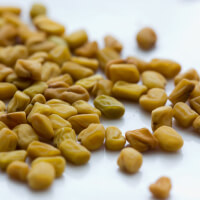
Description

Time Commitment

Suggested Frequency

Time of Day

How to Do It
- Eat Probiotic-Rich Foods: Include fermented foods like kimchi, kefir, or kombucha.
- Add Prebiotic Fiber Daily: Support your good bacteria with fiber-rich fruits and veggies.
- Reduce Gut Disruptors: Limit sugar, alcohol, and processed foods.
- Stay Hydrated: Water supports digestion and helps the microbiome thrive.
- Chew Thoroughly: Start digestion in the mouth by slowing down your eating.
- Consider Supplementing: If needed, use a high-quality probiotic or digestive enzyme.

Required Equipment
- Probiotic Foods or Supplements: Yogurt, kefir, sauerkraut, or high-quality probiotic capsules.
- Prebiotic Foods: Fiber-rich foods like garlic, onions, oats, and bananas.
- Optional: Digestive Enzymes: To aid in nutrient breakdown and absorption.
- Optional: Food Journal: To track how your gut responds to different foods.

Benefits
- Boosts Digestion: Supports smooth digestion and reduces bloating or discomfort.
- Strengthens Immunity: A healthy gut houses key immune defenses.
- Improves Mental Clarity & Mood: The gut-brain connection plays a major role in emotional health.
- Reduces Inflammation: A balanced microbiome helps lower systemic inflammation.
- Enhances Nutrient Absorption: Helps your body get the most from your food.

Why it works

Possible Side Effects
- Initial Bloating: Adjusting to more fiber or probiotics may cause temporary discomfort.
- Trial and Error: Finding the right foods or supplements may take some experimentation.

Tips
- Start Slow: Gradually increase fiber or probiotics to avoid bloating.
- Track Your Reactions: Use a journal to identify foods that help or hurt your gut.
- Be Consistent: Gut health improves with daily habits, not one-time fixes.

Supporting Studies and Articles
- Gut Microbiota and Mental Health
Shows how gut bacteria influence brain health, mood, and cognitive function.
- Gut Microbiome and Immune Regulation
Highlights the gut’s essential role in regulating immune responses and inflammation.








